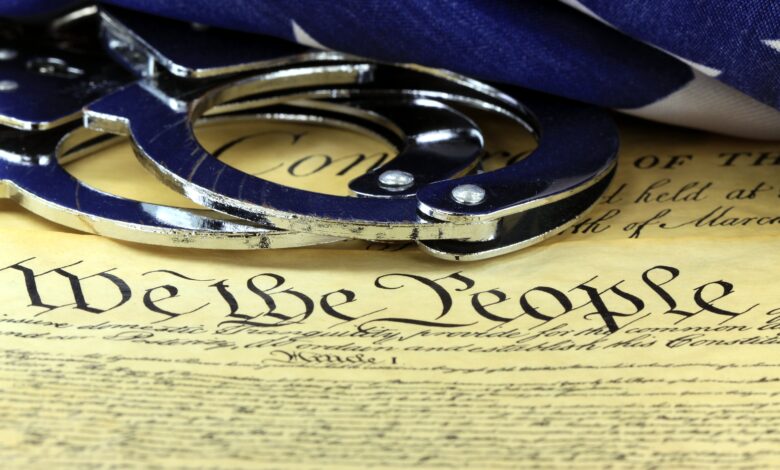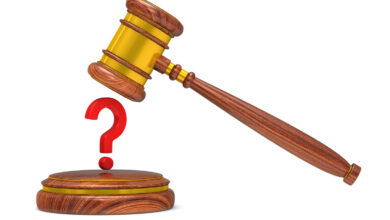After Immunity Decision, Is It Still Possible to Prosecute a Corrupt President?

BETWEEN THE EXTREME PARTS of the Supreme Court’s decision in Trump v. United States (the insane hypothetical “Can the president order Seal Team 6 to assassinate his political rivals?” has now been answered with an equally insane “Yes!”) and the uncontroversial parts (explaining that there is no immunity for a president’s unofficial acts), there is a vast murky middle. What should we make of the ruling that a president is “at a minimum” entitled to a “presumption” of immunity from prosecution for acts that, while official, fall outside of his “core” official duties? What kind of a showing would it take to rebut that presumption?
Start with the three words that have mostly been ignored in the commentary about the decision, “at a minimum.” The Trump decision divides official presidential acts into two categories: (1) those taken pursuant to a president’s “core constitutional powers” and (2) everything else. The first category is granted absolute immunity, while the second category is entitled “at a minimum” to a “presumption” of immunity.
What does “at a minimum” mean? It means that the Court may yet rule that even non-core official acts are protected by absolute immunity. Chief Justice John Roberts’s opinion expressly leaves that question open:
At least with respect to the President’s exercise of his core constitutional powers, this immunity must be absolute. As for his remaining official actions, he is also entitled to immunity. At the current stage of proceedings in this case, however, we need not and do not decide whether that immunity must be absolute, or instead whether a presumptive immunity is sufficient.
There’s a loophole here, and it’s a mile wide.
Note the words “at least.” Read in context, they mean that a president is entitled absolute immunity “at least” (but not necessarily only) when he exercises his core constitutional powers, and that he is entitled “at a minimum” to presumptive immunity for non-core official acts.
In other words, SCOTUS is not out of shoes to drop on this issue. When it comes up again—and it almost certainly will—the Court may yet find that Trump enjoys absolute immunity for all of his official acts, core and non-core alike.
Bottom line: Absolute immunity for core official acts? Yes. Absolute immunity for all official acts, including non-core: Maybe.
The chief justice leaves that question to be decided at a later day, but the opinion creates real doubt as to how much of a difference might exist between the absolute immunity for core official actions and the presumptive immunity for non-core acts, if any.
Assume for the sake of argument that on that later day the Court rules that presidential immunity for non-core official acts is merely presumptive, not absolute. What would that mean? How would it work? What would a prosecutor have to show in order to rebut that presumption?
According to the Roberts, a prosecutor would have to show that criminally prosecuting a non-core official presidential act “would pose no ‘dangers of intrusion on any authority and functions of the Executive Branch.’” Note: “no” danger, not excessive danger.
The very idea that the government could prosecute a president for an official act with no intrusion on his authority seems circular and nonsensical—if it’s an “official” act in the first place, prosecuting a president for it would appear, by definition, to intrude on his official authority. There doesn’t seem to be a way out.
But maybe there is.
One way to interpret the Trump decision is that some presidential acts may be “official” in the sense that they are committed in a president’s capacity as president, and yet still not be an exercise of executive authority. Because the act is deemed official, it starts with the benefit of being presumed to be immune from prosecution. That presumption, however, can be rebutted by showing that the act, while somehow “official,” was nevertheless not an exercise of executive authority specifically granted to the president under the Constitution.
Roberts offers a single example of how the government might go about showing that an action taken by the president could be, at the same time, both (a) official and (b) not an exercise of executive authority.
The example deals with Trump’s attempt to enlist Vice President Pence to use his ceremonial role on January 6, 2021 at the congressional certification proceeding to fraudulently alter the election results. Roberts first concludes that Trump’s attempts to pressure Pence “involve official conduct, and Trump is at least presumptively immune from prosecution for such conduct.” The question thus becomes, according to Roberts, “whether that presumption of immunity is rebutted under the circumstances.” The answer, it appears, would depend on deciding whether Trump’s conversations with Pence were conducted in the context of “the Vice President’s expansive role of advising and assisting the President within the Executive Branch,” in which case they would be immune from prosecution, or in the context of the vice president presiding over the certification proceeding, which is not an executive branch function and therefore prosecutors might be able to rebut the presumption of immunity.
Note that the decision here is not whether Trump’s conversations with Pence were official or non-official. That question is already answered. According to Roberts, “whenever the President and Vice President discuss their official responsibilities, they engage in official conduct.” The question is whether the discussions involved the exercise of executive authority.
Given the unique nature of the vice president’s non-executive authority as presiding officer of the Senate, it is difficult to see how the one and only example offered by the chief justice might apply to anything else. But let’s give it a try anyway.
Take Trump’s participation in the fake electors scheme.
The chief justice sets out the competing arguments for and against immunity. On the one hand, Trump argues that his pressuring of state officials was conducted under his authority as president to take care that the laws be faithfully executed, and that he was promoting the integrity of a federal election. On the other, the government sees Trump’s conduct as nothing more than a “private scheme with private actors.” According to the prosecution, Trump can point to “no plausible source of authority enabling the President to not only organize alternate slates of electors but also cause those electors—unapproved by any state official—to transmit votes to the President of the Senate for counting at the certification proceeding, thus interfering with the votes of States’ properly appointed electors.”
Roberts doesn’t pick the winner here. It’s too complicated for the Supreme Court. Trump’s conduct with state officials “cannot be neatly categorized as falling within a particular Presidential function.” Determining whether they do or not, according to the chief justice, “requires a close analysis of the indictment’s extensive and interrelated allegations.” Rather than conducting that analysis on his own, Roberts remands the case to the district court “to determine in the first instance—with the benefit of briefing we lack—whether Trump’s conduct in this area qualifies as official or unofficial.”
IT THUS APPEARS that Special Counsel Jack Smith may have two cracks at prevailing in the trial court. “In the first instance,” trial court Judge Tanya Chutkan will have to determine whether Trump’s participation in the fake elector scheme was “official” or not. If not, there’s no immunity.
Finding that Trump’s actions regarding the fake electors were official, however, would not necessarily end the analysis. Judge Chutkan would then have to go on to decide whether (1) Trump’s actions were part of his core constitutional duties, in which case they would be absolutely immune from prosecution, or (2) Trump’s actions, albeit official, did not involve the exercise of specific executive authority granted to the president, in which case the presumption of immunity would be rebutted.
Then wash, rinse, and repeat. Apply the same convoluted analysis to every one of the dozens of allegations of Trump’s misconduct and abuse of presidential authority. Then go back to the appeals court. Then go back to the Supreme Court. Then back to the trial court. Then maybe start the whole process over again—or maybe, if the stars finally align, get to a trial that has been truncated along the way. Years from now.
It will be a long, difficult slog and it’s unclear whether what we find at the end of the road will look like a king or a president subject to the rule of law.




